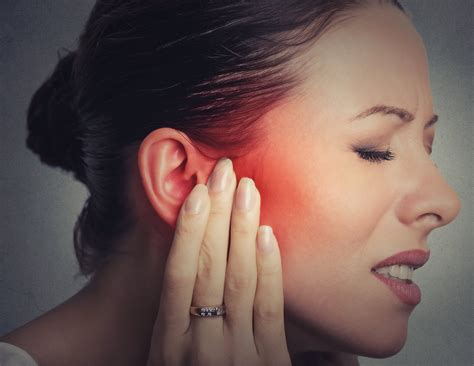Find Lasting Relief from TMJ-Related Dizziness
Temporomandibular joint (TMJ) disorder is more than just jaw pain; it can significantly impact your overall well-being, often manifesting as debilitating dizziness. This article delves into the connection between TMJ and dizziness, exploring causes, effective treatment options, and lifestyle modifications to help you find lasting relief. Understanding the root cause is crucial for effective management.
What is the Connection Between TMJ and Dizziness?
The intricate relationship between your jaw and inner ear might surprise you. The temporomandibular joints (TMJs) are located just in front of your ears, and any dysfunction can affect nearby nerves and blood vessels. This can disrupt the intricate balance mechanisms within the inner ear responsible for proprioception (sense of body position) and equilibrium, leading to dizziness, vertigo, and imbalance. Misalignments in the jaw can even indirectly impact the cervical spine, further contributing to dizziness.
How Does TMJ Cause Dizziness?
Several mechanisms explain the link between TMJ disorder and dizziness:
- Cranial Nerve Involvement: The trigeminal nerve, responsible for jaw movement and sensation, runs close to nerves controlling balance. TMJ dysfunction can irritate or compress these nerves, disrupting their function and causing dizziness.
- Vascular Issues: TMJ problems can affect blood flow to the inner ear and brain. Changes in blood pressure or reduced blood supply can trigger dizziness or lightheadedness.
- Muscle Tension: Chronic jaw clenching and grinding associated with TMJ can create tension headaches and neck pain, further exacerbating dizziness. This muscle tension can also directly impact the inner ear.
- Cervical Spine Involvement: The upper neck and jaw are closely connected. TMJ problems can lead to misalignments in the cervical spine, affecting the balance system and causing dizziness.
What are the Symptoms of TMJ-Related Dizziness?
Identifying TMJ-related dizziness requires recognizing associated symptoms. These often include:
- Dizziness or Vertigo: A feeling of spinning or lightheadedness.
- Imbalance: Difficulty with coordination or maintaining balance.
- Jaw Pain: Pain, clicking, or popping in the jaw joint.
- Headaches: Tension headaches or migraines.
- Neck Pain: Stiffness or pain in the neck and shoulders.
- Earache: Pain or fullness in the ear.
How is TMJ-Related Dizziness Diagnosed?
Diagnosing TMJ-related dizziness requires a thorough evaluation. Your doctor will likely:
- Conduct a Physical Examination: Assess your jaw range of motion, palpate your jaw muscles, and check your posture.
- Review Your Medical History: Inquire about your symptoms, medical conditions, and any relevant family history.
- Order Imaging Tests: Possibly include X-rays, CT scans, or MRIs to evaluate your jaw joint and surrounding structures.
- Refer to a Specialist: You might be referred to an oral surgeon, dentist specializing in TMJ, or neurologist to rule out other potential causes.
How Can I Find Lasting Relief from TMJ-Related Dizziness?
Treatment for TMJ-related dizziness aims to address both the jaw disorder and the dizziness itself. Options include:
- Medications: Pain relievers, muscle relaxants, and anti-inflammatory drugs can help manage pain and inflammation.
- Physical Therapy: Exercises and stretches can improve jaw range of motion, reduce muscle tension, and enhance balance.
- Splints or Mouthguards: These devices help to realign the jaw and reduce nighttime clenching and grinding.
- Lifestyle Modifications: Stress management techniques, improved posture, and dietary changes can help reduce TMJ symptoms.
- Injections: Corticosteroid injections can reduce inflammation in the jaw joint.
- Surgery: In severe cases, surgery may be considered to correct jaw misalignments.
What are the Long-Term Effects of Untreated TMJ-Related Dizziness?
Ignoring TMJ-related dizziness can lead to several long-term complications:
- Chronic Dizziness: Persistent dizziness affecting daily activities and quality of life.
- Chronic Pain: Persistent jaw, neck, and head pain.
- Limited Mobility: Difficulty with movement and balance.
- Depression and Anxiety: Chronic pain and disability can lead to emotional distress.
Can I Prevent TMJ-Related Dizziness?
While not always preventable, you can take steps to reduce your risk:
- Manage Stress: Stress reduction techniques can significantly impact TMJ symptoms.
- Maintain Good Posture: Good posture alleviates strain on the jaw and neck.
- Practice Jaw Exercises: Strengthening jaw muscles can improve stability.
- Protect Your Teeth: Avoid clenching or grinding your teeth.
What Other Conditions Can Cause Dizziness?
It's crucial to remember that dizziness has numerous causes beyond TMJ. These can include:
- Inner Ear Infections: Common culprits of vertigo and dizziness.
- Vestibular Disorders: Conditions impacting the inner ear's balance mechanisms.
- Migraines: Severe headaches often accompanied by dizziness.
- Neurological Conditions: Some neurological disorders can manifest as dizziness.
This comprehensive overview helps clarify the link between TMJ and dizziness. Remember to consult a healthcare professional for accurate diagnosis and personalized treatment to find lasting relief. Early intervention is key to minimizing long-term complications.

